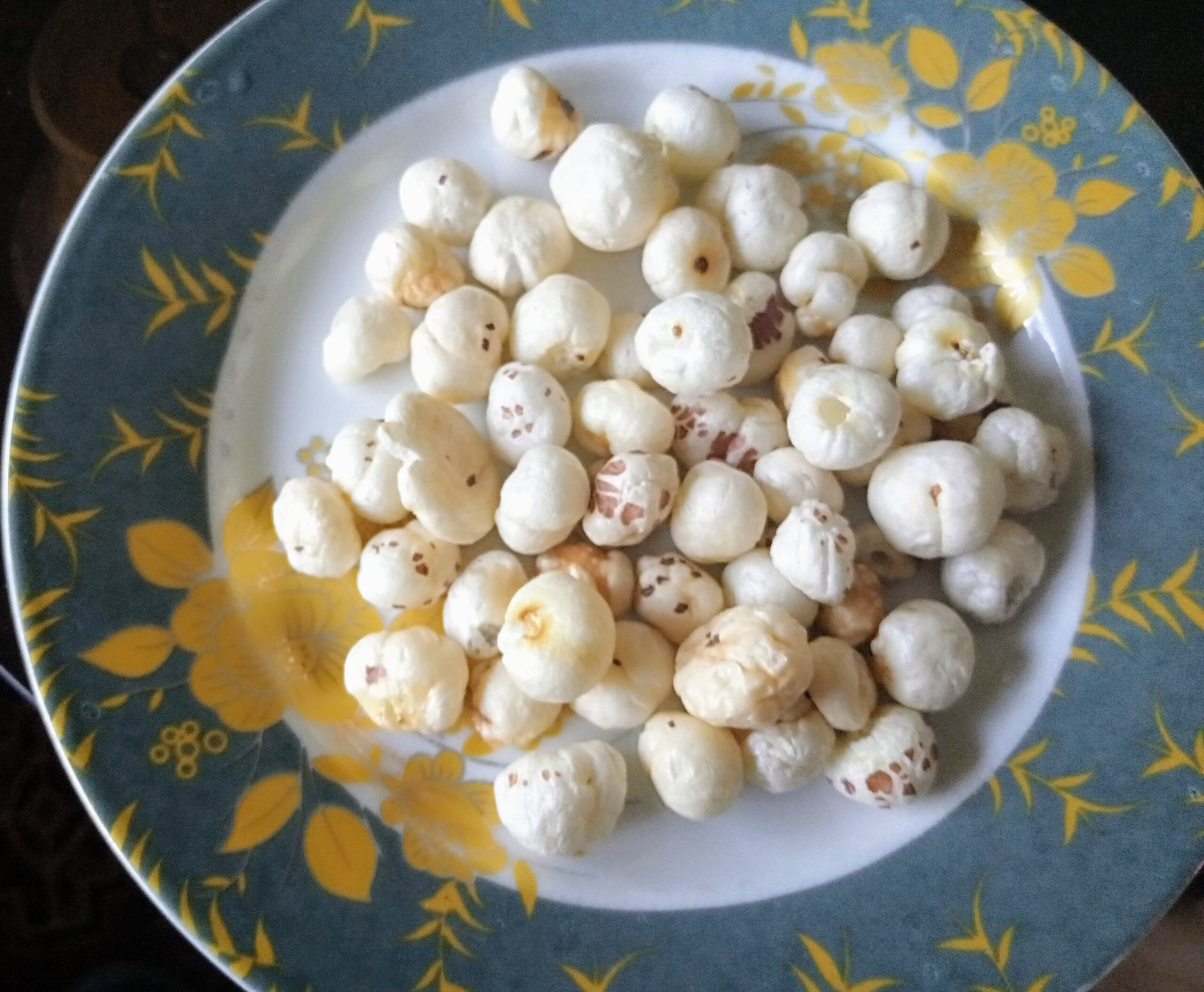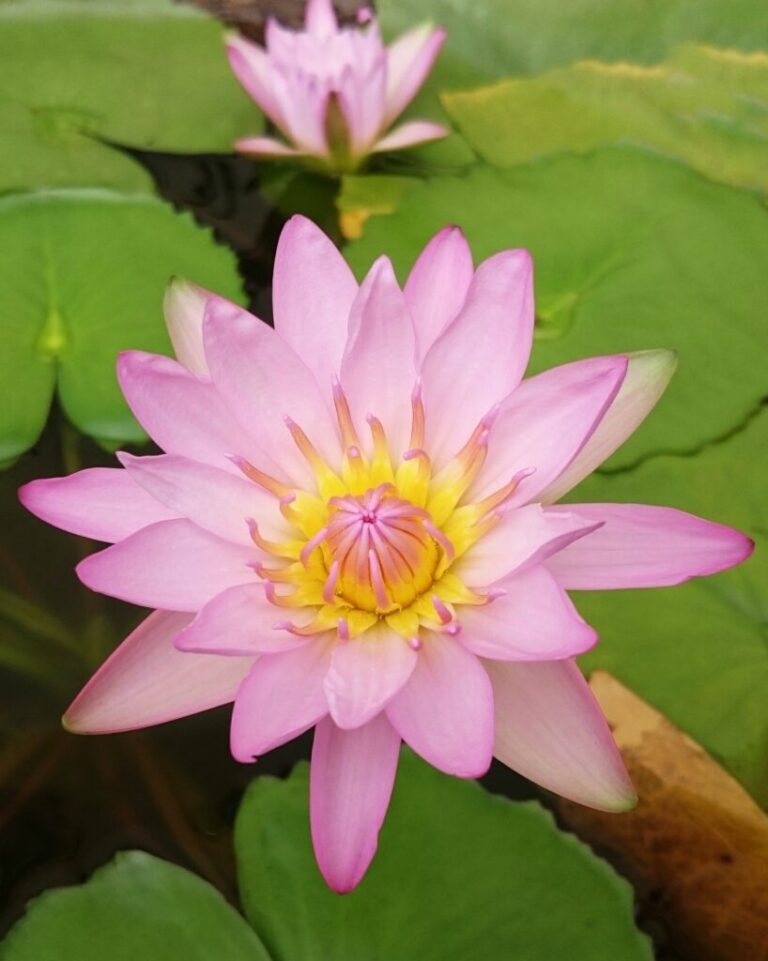Lotus Seeds 2025: A Superfood with Incredible Health Benefits
Have you ever consumed lotus seeds? The second query is, did you take it on someone’s recommendation or know its nutritional values plus its health benefits? Let’s explore the incredible benefits of lotus seeds and how they can enhance your overall well-being.
Lotus seeds, also known as fox nuts, makhana, Euryale Ferox, or Gorgon nuts, are a well-known aquatic plant product widely consumed in Asian regions. In Chinese, they are called “lian zi”. While the lotus plant is admired for its beautiful blossoms, its seeds have been used for centuries as a nutrient-dense superfood. Packed with essential vitamins, minerals, and antioxidants, lotus seeds offer many health benefits, from improving heart health to promoting better sleep.
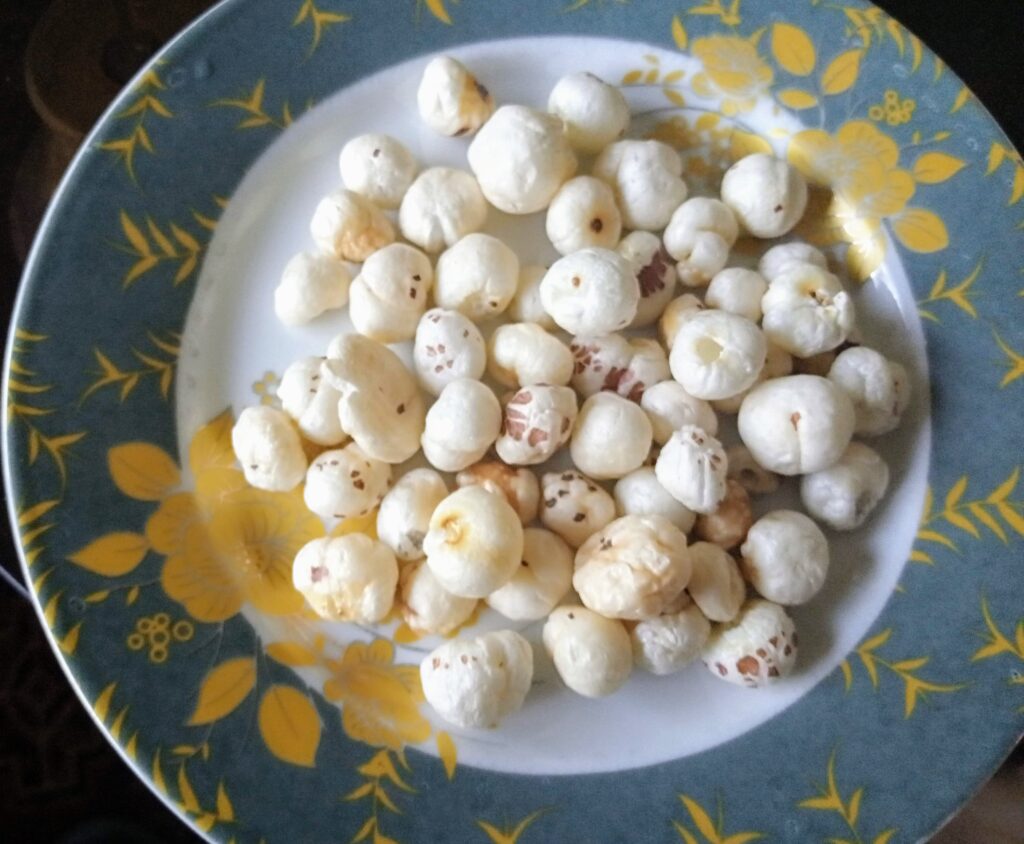
This table provides a clear breakdown of the key nutrients per 100 grams found in lotus seeds:
Nutrient | Amount per 100g | Health Benefits
|————————–|———————|————————————-
Calories | 89 kcal | Low-calorie snack, ideal for weight management.
Protein | 4.13 g | Supports muscle repair and growth.
Carbohydrates | 17.28 g | Provides energy and dietary fibre.
Dietary Fiber | 0.8 g | Improves digestion and gut health.
Fats | 0.53 g | Low fat, making it a heart-healthy snack.
Sugars | 0 g | Suitable for diabetics due to no added sugars.
Calcium | 44 mg | Strengthens bones and teeth.
Iron | 0.95 mg | Prevents anaemia and improves blood health.
Magnesium | 56 mg | Supports heart health and muscle function.
Phosphorus | 168 mg | Essential for bone health and energy production.
Potassium | 367 mg | Regulates blood pressure and fluid balance.
Sodium | 1 mg | Low sodium content, ideal for hypertension patients.
Zinc | 0.28 mg | Boosts immune function and wound healing.
Vitamin C | 0 mg | Contains antioxidants indirectly through other compounds.
Thiamine (Vitamin B1)| 0.171 mg | Enhances brain function and energy metabolism.
Riboflavin (Vitamin B2)| 0.04 mg | Supports skin health and energy production.
Niacin (Vitamin B3) | 0.429 mg | Improves cholesterol levels and supports brain health.
Vitamin B6 | 0.168 mg | Supports neurotransmitter production and brain health.
Folate (Vitamin B9) | 28 µg | Reduces the risk of heart disease and supports cell growth.
Antioxidants | High | Protects against oxidative stress and chronic diseases.
Key Takeaways:
Lotus seeds are low in calories and fat, making them a healthy snack.
They are rich in magnesium, potassium, and phosphorus, which support heart, bone, and muscle health.
Their high fibre content aids digestion and weight management.
The seeds are a good source of B vitamins, which enhance brain function and energy metabolism.
They are gluten-free and low in sodium, making them suitable for people with dietary restrictions.
This table highlights why lotus seeds are considered a nutrient-dense superfood with numerous health benefits.
Health Benefits of Lotus Seeds
- Improves Heart Health
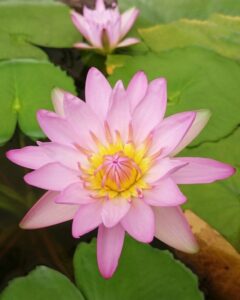
Lotus Flower
These seeds are rich in magnesium, a vital mineral that acts as a natural calcium channel blocker. Magnesium enhances blood flow, ensuring proper circulation of oxygen and nutrients throughout the body. Low magnesium levels can increase the risk of heart attacks, but regular consumption of lotus seeds can significantly improve heart health. Additionally, the folate content in these seeds helps reduce the risk of coronary heart disease and other cardiovascular conditions.
- Aids in Managing Diabetes
They have a low glycemic index, making them an excellent snack for people with diabetes. They help regulate blood sugar levels by preventing sudden spikes and improving the body’s insulin response. For diabetics, roasted or dried lotus seeds are a healthy evening snack. Moreover, their ability to stabilize blood pressure makes them even more beneficial, as diabetes often increases the risk of hypertension.
- Promotes Kidney Health
These seeds are packed with phytonutrients and astringent properties that help detoxify the body. They reduce acidity, prevent the formation of kidney stones, and improve renal function. Their diuretic properties aid in flushing out toxins and excess fluids from the kidneys and bladder, reducing the risk of infections and kidney damage. In Ayurveda, lotus seeds have long been used to support kidney health and provide essential nutrients for optimal function.
- Boosts Digestion
High in dietary fibre, seeds promote a healthy digestive system. They regulate appetite, reduce cravings, and aid in weight loss by keeping you full for longer. Additionally, they help cleanse the liver and kidneys, removing waste buildup and supporting gut health.
- Enhances Sexual Health
They are a natural aphrodisiac that boosts libido and sexual performance in both men and women. They improve blood flow to reproductive organs, enhancing fertility and sexual well-being. Regular consumption of roasted lotus seeds can help treat conditions like erectile dysfunction in men and low libido in women.
- Anti-Aging Properties
Seeds contain an enzyme called L-iso aspartyl methyltransferase, which repairs damaged proteins and boosts collagen production. This enzyme helps slow down the ageing process, reducing the appearance of wrinkles and fine lines. Lotus seed powder is often used in cosmetic products for its anti-ageing benefits, making it a natural way to maintain youthful skin.
- Promotes Better Sleep
The soothing and antispasmodic properties of lotus seeds help relax nerves and improve sleep quality. They contain isoquinoline alkaloids, which reduce anxiety and depression while promoting relaxation. Adding lotus seeds to your diet can help you achieve a more restful night’s sleep.
- Supports Weight Loss
low in calories and high in alkaloids and flavonoids, making them an excellent snack for weight loss. Their detoxifying properties help eliminate toxins from the body, while their low glycemic index keeps you full for longer. Regular consumption of lotus seeds can also improve metabolism and prevent the buildup of bad cholesterol (LDL).
- Regulates Blood Pressure
The seeds are a great addition to the diet of individuals with hypertension. They are low in sodium and rich in potassium and magnesium, which help regulate blood pressure. Their cardio-tonic properties make them effective in managing mild to moderate hypertension.
- Enhances Brain Function
They are a rich source of thiamine (vitamin B1), which supports cognitive function. They help produce acetylcholine, a neurotransmitter essential for healthy nerve function. Regular consumption of lotus seeds can improve memory, focus, and overall neurological performance.
- Boosts Immune System
These seeds are a good source of zinc, a mineral crucial for immune function. Regular consumption can strengthen the immune system, reducing the risk of infections and illnesses.
- Rich in Antioxidants
Lotus seeds are packed with antioxidants, including vitamin C, which protect the body from oxidative stress and reduce the risk of chronic diseases.
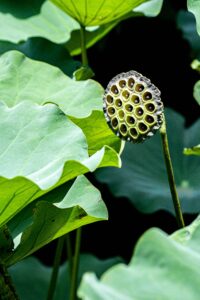
How to Consume Lotus Seeds
- Lotus seeds can be enjoyed in various forms:
- Raw or roasted as a healthy snack.
- Boiled or added to soups and stews.
- Powdered and mixed with warm milk or water.
- Used in Chinese and Japanese desserts as a paste or syrup.
Lotus tea is an infusion made from lotus leaves, flowers, roots, fruit, seeds, or embryos. It is known as liánchá (莲茶, 蓮茶, [ljɛ̌n.ʈʂʰǎ]) in Chinese and yeoncha (연차, 蓮茶, [jʌn.tɕʰa]) in Korean. It is also known as trà sen in Vietnamese.
While lotus seeds are generally safe and beneficial for most people, certain individuals should exercise caution or avoid consuming them due to potential health risks or interactions. Here’s a detailed guide on who should avoid lotus seeds and why:
People with Allergies to Lotus Seeds or Similar Plants
Reason: Some individuals may have an allergic reaction to lotus seeds or other plants in the same family (e.g., water lilies).
Symptoms: Itching, swelling, rashes, or difficulty breathing.
Advice: If you have a known allergy to aquatic plants or seeds, avoid lotus seeds and consult an allergist.
Individuals with Low Blood Pressure (Hypotension)
Reason: Lotus seeds are known to help regulate blood pressure, which can be problematic for those with already low blood pressure.
Risk: Excessive consumption may cause blood pressure to drop too low, leading to dizziness, fainting, or fatigue.
Advice: Monitor your blood pressure regularly and consult a doctor before adding lotus seeds to your diet.
Pregnant and Breastfeeding Women
Reason: There is limited research on the effects of lotus seeds during pregnancy and breastfeeding.
Risk: Certain compounds in lotus seeds may have unknown effects on fetal development or milk production.
Advice: Consult a Doctor before consuming lotus seeds during pregnancy or while breastfeeding.
People Taking Blood Pressure Medications
Reason: Lotus seeds have natural blood pressure-lowering properties, which may interact with antihypertensive medications.
Risk: Combining lotus seeds with blood pressure medication could cause blood pressure to drop too low.
Advice: Speak with your doctor before consuming lotus seeds if you are on blood pressure medication.
Individuals with Digestive Issues
Reason: Lotus seeds are high in fibre, which can cause bloating, gas, or diarrhoea in people with sensitive digestive systems.
Risk: Overconsumption may worsen conditions like irritable bowel syndrome (IBS) or inflammatory bowel disease (IBD).
Advice: Start with small amounts and monitor your body’s response. Avoid if symptoms worsen.
People with Kidney Stones or Kidney Disease
Reason: While lotus seeds are generally beneficial for kidney health, their high mineral content (e.g., calcium, phosphorus) may contribute to kidney stone formation in susceptible individuals.
Risk: Excessive consumption could worsen kidney stone conditions or strain compromised kidneys.
Advice: Consult a nephrologist before adding lotus seeds to your diet if you have a history of kidney stones or kidney disease.
Individuals on Low-Calcium Diets
Reason: Lotus seeds contain calcium, which may not be suitable for people who need to limit calcium intake (e.g., those with hypercalcemia or certain metabolic disorders).
Risk: Excessive calcium intake could lead to complications like kidney stones or calcium buildup in blood vessels.
Advice: Consult your Doctor to determine if lotus seeds are safe for you.
People with Diabetes on Medication
Reason: While lotus seeds help regulate blood sugar, they may interact with diabetes medications, causing blood sugar levels to drop too low (hypoglycemia).
Risk: Combining lotus seeds with antidiabetic drugs could lead to dizziness, confusion, or fainting.
Advice: Monitor blood sugar levels closely and consult your doctor before consuming lotus seeds.
Children Under 5 Years Old
Reason: Lotus seeds are small and hard, posing a choking hazard for young children.
Risk: Choking or digestive issues due to underdeveloped digestive systems.
Advice: Avoid giving whole lotus seeds to young children. If consumed, ensure they are ground into a fine powder or paste.
People Undergoing Surgery
Reason: Lotus seeds may affect blood pressure and blood sugar levels, which could interfere with surgical procedures or recovery.
Risk: Complications during or after surgery due to unstable blood pressure or blood sugar.
Advice: Stop consuming lotus seeds at least two weeks before any scheduled surgery.
General Precautions
Moderation is Key: Overconsumption of lotus seeds may lead to side effects like digestive discomfort or nutrient imbalances.
Quality Matters: Ensure lotus seeds are sourced from reputable suppliers to avoid contamination or pesticides.
Consult a Doctor: If you have any underlying health conditions or are taking medications, consult a healthcare professional before adding lotus seeds to your diet.
Lotus seeds are a nutrient-rich superfood with numerous health benefits, but they may not be suitable for everyone. If you fall into any of the above categories, it’s best to consult a healthcare provider before consuming lotus seeds. Always prioritize safety and moderation when incorporating new foods into your diet.
Recommended Dosage: Consume 3 to 6 grams of powdered lotus seed extract daily, divided into small doses after meals. You can mix it with warm milk, water, or honey for added benefits.
Conclusion
Lotus seeds are a nutrient-packed superfood with numerous health benefits. From improving heart health and managing diabetes to promoting better sleep and enhancing brain function, these tiny seeds are a powerhouse of nutrition. Incorporating lotus seeds into your diet can significantly improve your physical and mental well-being.
Disclaimer
The information provided in this article is for educational purposes only and should not be considered medical advice. Always consult a licensed healthcare professional before making any changes to your diet or health regimen.
If you found this article helpful, please like, share, and subscribe for more health and wellness content!
What is Brain Rot: Causes, Symptoms, and Prevention in 2025
